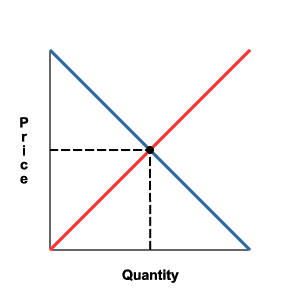 When a normal real estate contract is written, the buyer requests a close of escrow date, which is typically dependent upon multiple conditions being met. There are a lot of people involved, a lot of documents involved, and contractual time lines to follow. Normally, that time frame is somewhere around 30 to 45 days. In the case of FHA financing, it’s on the longer end. In the case of a cash purchase, it can be as quickly as Title can complete their work, or simply a matter of days.
When a normal real estate contract is written, the buyer requests a close of escrow date, which is typically dependent upon multiple conditions being met. There are a lot of people involved, a lot of documents involved, and contractual time lines to follow. Normally, that time frame is somewhere around 30 to 45 days. In the case of FHA financing, it’s on the longer end. In the case of a cash purchase, it can be as quickly as Title can complete their work, or simply a matter of days.
When a buyer writes an offer on a Short Sale, there is no close of escrow date. Instead, the close of escrow date typically reads, “See Short Sale Addendum.” In the Short Sale Addendum, you’ll see on line 38:
Close of Escrow: Close of Escrow shall occur thirty (30) days or _________ days after delivery of Agreement Notice.
The Agreement Notice is the letter that your lender(s) provide upon reaching an agreement to sell for less than you owe on the property. According to lines 22-23 of the Short Sale Addendum:
Agreement Notice: If Seller and Seller’s creditors enter into a short sale agreement, the Seller shall immediately deliver notice to buyer (“Agreement Notice”).
Once the letter(s) reach the buyer, even though there has been initial contract acceptance by the seller at the start of this process, for the purposes of the contract time lines, we consider this the date of contract acceptance. Technically, we have already had an executed contract during the entire negotiation period, with a Short Sale contingency.
In most of the short sales that I have listed, I make sure the buyer and seller understand that we are going to fast track this to closing within 21 days of the Agreement Letter receipt. I do this on line 38 of the Short Sale Addendum because 9 times out of 10, the agreement letter affords us only 30 days to close, and the last thing we want is to run up against the expiration of this letter, coupled with a potential impending Trustee Sale date. And, since we’ve had so much time for the buyer to sit around and basically do nothing, it’s assumed that the financing documents are already in order. This is why it is critical, buyers, to have all of your documents ready to rock at your lender so when the agreement letter arrives, your lender will be able to push forward.
The Squeakiest wheels are typically caused by buyers’ lenders not having everything they need to proceed. While most transactions outside of the short sale world are relatively smooth, even with all of the turbulence the transaction can experience, COE in a Short Sale is more of a balancing act and must be taken very seriously. Lenders don’t like to bend once they’ve made their decision.

